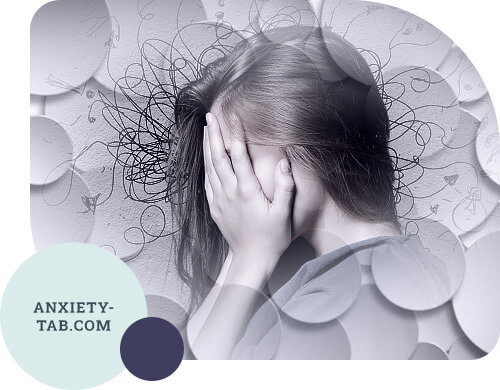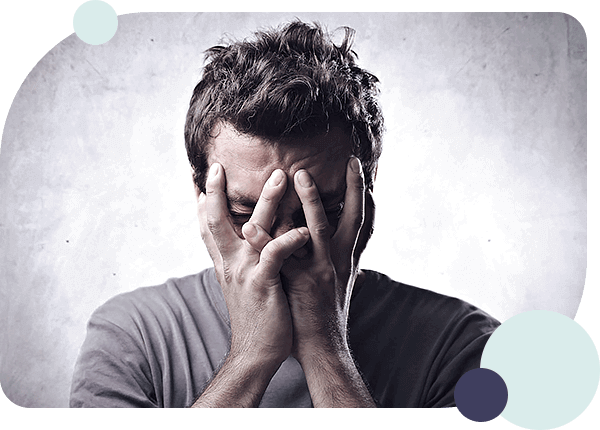Sleep and Insomnia
Sleep is a source of strength and the best of medicines; it helps relieve severe anxiety or mental fatigue. Happy is the one to whom sleep invariably appears at a certain time, for a certain period of time, and leaves as quietly and imperceptibly as it came.
The world of wakefulness and the world of sleep are so different from each other that it can be said of each person that he lives as if in two worlds.
Sleep is the source of our strength, a balm for the sick soul, the best of all medicines. Everyone knows from his own experience that often the best and only way to get rid of severe anxiety or mental fatigue is to sleep them off. Happy is the one to whom sleep invariably appears at a certain time, for a certain period, and leaves as quietly and imperceptibly as it came.
According to Greek mythology, the god of sleep is Hypnos.

The duration and depth of sleep in healthy people varies. The average norm of sleep for an adult, seven to eight hours, has only a tentative value. Some people need nine or even ten hours of sleep, while others need five to six hours. Both are considered quite normal. Children and young people are known to sleep longer than adults, and old people sleep the least. Working people sleep better than housewives and retirees. Among the young, school and university students are the worst sleepers. Men are less likely to complain of insomnia than women, although in general women sleep more than men.
People who are active, energetic people usually sleep less than the average rate. People with reduced intelligence sleep longer than others. People believe that a lot of sleep - bad for you. Not without reason, the proverb says: "Who sleeps a lot, he does not live much. Sleepiness is associated with laziness: "If you are sleepy, you are lazy.
Vain and ambitious people consider sleep a waste of time. Cowardly people like to spend a long time in bed in the morning, with a tendency to pull the blanket over their ears.
In many ways, sleep is a mood regulator. In some cases, it reduces excessive stress, and we wake up in a good mood. In other cases, on the contrary, we get out of bed with a headache and a bad mood.
Sleep disturbance is more common in people of intellectual work, subjected to information overload, with prolonged emotional overstrain.
Alcohol, nicotine and drugs have a negative influence on the quality of sleep. Chronic sleep disorders caused by staying up late are extremely dangerous. Air temperature has a great effect on sleep. It is bad to fall asleep in a hot, heated and unventilated room, as well as after taking a hot bath shortly before going to sleep. Even air pressure affects sleep: in the mountains, people sleep longer than in flat areas.
It is considered advisable to sleep with the head facing north.
The nature of sleep is still poorly understood. There are several points of view on the subject. According to one of them, sleep is interpreted as a physiological process aimed at preventing self-expulsion of the body from harmful acids and other decay products accumulated during the waking period. According to another version, sleep is explained by the action of adrenaline, which has the property of strongly constricting the arteries. In high doses, adrenaline acts as a poison, but in low doses it produces anemia of the organs and has a special effect on the nerve centers. Since sleep is accompanied by anemia of the brain, it is logical to assume that this state is due to the effects of adrenaline.
Sleep is a cyclic physiological process. In an adult, the cycle repeats every 90 minutes. During the night, there are 4 to 6 cycles, depending on the length of a person's sleep. Each cycle has two phases - a slow deep sleep phase and a paradoxical sleep phase.
Sleep begins with drowsiness: pupils become narrower, consciousness becomes cloudy, and hallucinations occur. After about five minutes, a slow deep sleep sets in. When falling asleep many processes of the body are suspended: body temperature decreases, respiration rate and pulse rate slow down, blood pressure drops, the amount of the stress hormone cortisol, which is secreted by the cortical layer of the adrenal glands, decreases. As for growth hormone, on the contrary, it reaches exceptionally high levels. These hormonal shifts activate metabolic processes. In this phase of sleep, slow rotating eye movements take place under closed eyelids. The awakened person cannot understand where he or she is, and does not remember the contents of what he or she saw in the dream.
During the paradoxical phase of sleep, there is an increase in activity of various organs and systems. In particular, there are rapid eye movements, breathing becomes irregular, pulse and blood pressure also fluctuate. The process of regeneration of lost strength and "healing" of any ailments is intensified, the brain remembers, fixes what it has learned or learned during the day. Men have an erection of the penis, not only in adults, but also in children and even infants. By this sign in the case of impotence one recognizes whether the latter is organic or psychological. Psychological impotence does not exclude the occurrence of erections in dreams.
In the paradoxical phase of sleep, a man sees the most vivid, emotionally colored dreams. This is evidenced by the fact that, having been awakened at this time, the man can tell what he saw in the dream.
A child in a paradoxical dream is much more disturbed than an adult. His arms, legs, and facial muscles are constantly twitching. Premature infants can be so active that it is difficult to tell if they are in a paradoxical sleep or awake state.
The cycle of deep slow and paradoxical sleep is evident at an early age, but then the duration of the cycle is shorter: in one-year-old infants it is 45-50 minutes, and by age five it increases to 60-70 minutes. Older children gradually develop a 90-minute cycle typical of adults.
In older people, the reduction in the time spent in sleep occurs mainly due to slow deep sleep. The percentage of paradoxical sleep remains fairly stable.
With each new 90-minute sleep cycle, the recovery process of lost energy decreases, while the process of remembering, on the contrary, increases. Thus, about two hours before awakening, the "remembering" function is particularly intense.
There are no people who do not see dreams, only people who do not remember them. In most cases, dreams are trivial and uninteresting. Only a small percentage of them contain strange and fantastic elements. It is noteworthy that daily routine activities are rarely recorded in dreams. Rational and realistic elements, similar to thinking while awake, prevail in the deep slow phase of sleep. In the paradoxical phase, more complex, vivid, fantastical dreams dominate. Often, it happens that in a dream, the person finds the necessary way out of a previously unsolvable problem, as if continuing the creative process. In a dream can be overcome conflict situations of a psychological nature.
The content of dreams is more often negative than positive: defeats and failures, confrontations with cruelty and aggression. More than a third of dream reports contain the emotions of fear and anxiety. But even with very exciting events in the dream, the accompanying emotions are strongly muted. It is not uncommon for the sleeper to shriek and awaken in terror, covered in clammy sweat. Children also often wake up from nightmares and have trouble falling asleep afterwards, with unpleasant themes and conflicts occurring more frequently in boys.
An important feature of dreams is the ability to hold attention. The latter is seized by certain events or objects from which it is impossible to free oneself - we cannot force our attention to switch to something else. This is due to the fact that in dreams there are no elements of imagination: consciousness does not wander as in waking life, but is focused on one thing.
A very common phenomenon that accompanies sleep is snoring. It occurs because the muscles of the pharynx relax and the tongue and lower jaw slowly slide back, blocking the already blocked airway through the nose and forcing us to breathe through the mouth.
Statistics show that about 30 percent of men and 20 percent of women snore in their sleep every night.
The tendency to snore increases with age. Intense snoring occurs during the deep slow sleep phase and weakens or disappears during the paradoxical sleep phase. Since snoring occurs when the person is lying on his or her back, obese people must have a special tendency to snore: their physique makes them sleep on their back more, and the excess fatty tissue in the larynx increases vibrations.
The cause of snoring can be upper respiratory diseases such as allergies, sinusitis and even a runny nose. In children, the same effect can cause extensive tonsillitis. Sometimes snoring is the cause of periodic breathlessness during sleep. The corresponding disease is called "sleep apnea". There are up to several hundred breath-holds during the night. Each of them lasts a few seconds, in exceptional cases - up to two minutes. At these moments, the person begins to twist and beat restlessly, as in convulsions, but usually does not wake up. On resumption, breathing is accompanied by a loud, explosive snoring. Apnea is more common in men after the age of forty.
The disease has two consequences. First, during the day, patients experience intense sleepiness due to sleep deprivation caused by frequent breath-holding. Second, during respiratory pauses, blood oxygen levels drop, causing oxygen deficiency in the body. This, in turn, causes increased pressure in the small (pulmonary) circulatory system and an abnormal heart rhythm. Both sleeping pills and alcohol, which suppress breathing, aggravate sleep apnea. Sudden death of elderly obese people is possible because of this condition.
Breathing pauses in sleep also occur in young children. They are probably the cause of sudden death in the crib of young children (SIDS syndrome). Possible victims of this syndrome are children who have great difficulty waking up from a slow deep sleep. It has been suggested that the disease is hereditary, so siblings of SIDS victims are more likely to be at risk of sudden death.

Unfortunately, there are antidepressants for depression to fight snoring. The probability of snoring decreases considerably if sleeping on your side instead of on your back. It is desirable to put a large pillow under the head of a snorer. To strengthen the muscles of the soft palate snorers useful to pronounce the sound "and" with the simultaneous tension of the neck muscles. This exercise should be repeated up to 30 times in the morning and evening. Improvement comes, as a rule, after a month. The following exercise also helps: press the chin to the chest with the mouth wide open and stick the tongue out as much as possible forward and downward. This exercise should be performed twice a day for five minutes. For obese people, the most effective way to get rid of snoring is to lose weight. In particularly severe cases, a stiff ball is sewn into the back of the snorer's sleeping pajamas so that the person cannot lie on his or her back. According to some experts, dreams in the paradoxical phase help to eliminate unnecessary information in the brain, which is formed during the waking phase. Therefore, sleep deprivation should cause a person to fall into unconsciousness after a while, since the mass of scattered thoughts and superficial impressions will accumulate in the brain and suppress those thoughts that should be kept entirely in memory. Artificially depriving a person of sleep for several days confirms this point of view. The first night passes relatively easily, but on the second night, the desire to sleep becomes irresistibly strong. Perception disorders and hallucinations are possible. The person complains, for example, that he cannot walk because the floor seems to be covered with a layer of sticky moving particles, or that the air is filled with colored specks. With longer periods of sleep deprivation, people become suspicious: they imagine that something is going on behind them, something is being hidden from them, etc. All these apparent mental disturbances are not accompanied by any organic symptoms, apart from burning and pain in the eyelids and eyes.
Sleep is one of the greatest creators of strong nerves. When one goes to bed with a pleasantly tired body, a quiet mind and an empty stomach, one should sleep like a healthy child. If you are overcome by fears and old anxieties in your dreams, it is not a healthy dream. Nightmares are usually the result of blood poisoning by poisons. In a person who is constantly too tired and nervous, stimulated by tobacco, coffee, tea, alcohol, sleeping pills, even 8-10 hours of sleep do not relieve tension.
Even a short afternoon nap should be considered a great benefit to human health. Our stomach requires a pause after a meal for good digestion. This impulse should not be resisted: if possible, put aside all business and surrender to rest instead of struggling with drowsiness.
The causes of sleep disorders are quite varied. The most common ones are unpleasant experiences, stress, mental or emotional overload, internal diseases and alcohol intoxication. Among the various manifestations of sleep disorders, insomnia is the most difficult for people to endure.
The word "insomnia" should not be taken literally, as a complete lack of sleep. Even with severe forms of it a person sleeps, even if only briefly, but always sleeps. In this sense, as a rule, you can not believe the man claims that he did not sleep through the night. Nevertheless, prolonged insomnia can wear a person out completely and completely ruin his health.
Insomnia is more common among women than men, and it progresses with age. There are three known forms of insomnia. The most common is difficulty falling asleep. People fidget for hours, hear the chiming of the clock and cannot fall asleep until 2-3 hours in the morning. The reasons for difficulty falling asleep are usually found in an excited state before going to bed and are due to intrusive thoughts: discussing conflict situations at work and at home, financial problems, the health of loved ones or your own, pondering plans for the future. Often sleep does not come because of joyful anticipation of something. Coughing and difficulty breathing, street noise, fluctuating weather conditions can be the cause.
Psychological problems may underlie complaints of serious sleep disorders of an unclear nature. Insomnia is a frequent first sign of endogenous depression, which, along with schizophrenia, is the most common form of serious mental disorders. Feelings of hopelessness, longing and guilt prevail in these patients. Desire and ability to take initiative disappear: everything seems equally senseless and insurmountably difficult. In a state of severe depression, suicide seems to be the only way to end all suffering.
The most common form of sleep disorder in depression is morning insomnia. Paradoxically, nevertheless, deprivation of this already disturbed sleep leads to a marked improvement in almost half of depressed patients, especially those suffering from the disease for a long time. Sleep deprivation therapy is quite simple - the patient is kept awake all night, encouraged to play games, read, knit, take walks. The next day, he showed improvement: his mood improved, he became more sociable and active. Although the effect of such therapy is only temporary, it is useful as a means of giving the patient an important push in the right direction.
Morning insomnia is also common in the elderly: after waking up at three or four in the morning, the person can no longer fall asleep.
Another form of sleep disorder is frequent night awakenings. In these people, sleep is too shallow. Waking up and falling asleep again can occur up to several times a night.
Some people are very sensitive to changes in daily biorhythms and are virtually unable to perform important tasks at inappropriate times of the day. As we age, adapting to changing biorhythms becomes increasingly difficult. For this reason, it is not surprising that shift workers often suffer from sleep disorders, and their work performance is subject to significant fluctuations at different times of the day.
After a long flight from east to west, a person cannot adjust to the new environment for several days: he wakes up unusually early, and by the middle of the day he feels deadly tired. Those traveling from the west to the east cannot fall asleep in the evening. The reason for these phenomena lies in the fact that our established (circadian) rhythms require a certain amount of time - about two weeks - to fully adjust to the new daily rhythm.
Adaptation of the organism to a new circadian rhythm is easier when the phase shift in the time cycle "waking - sleeping" takes place in the direction of lagging: a person goes to bed at a later time. This feature explains the fact that the change of time zones during a flight from east to west is much easier to tolerate than a flight in the opposite direction. This principle is also the basis for the method of treatment of some patients with the so-called phase delay of sleep caused by biorhythm disturbance. Shifting the sleep-wake cycle forward by several hours in such patients leads to an improvement in sleep.
To regulate sleep, it is useful to follow some recommendations.
There is no need for exciting conversations in the evenings, or reading stimulating literature. A light, non-tiring walk is useful. It is desirable to go to bed at the same time. Before going to bed it is useful to drink half a glass of sweet warm water or take a tablespoon of honey, drink a sedative tea containing valerian or motherwort.
The head should be open while sleeping, and the legs should be covered warmer: it helps to fall asleep. The concentration of thoughts on how to fall asleep quickly interferes with falling asleep: you should not try to fall asleep by force. Sleep is a disconnection from consciousness, so the consciousness cannot catch the moment of falling asleep, and waiting for this moment only harms the case.
It is not recommended to set oneself up for complete silence in the room.
It is useful to lie quietly with your eyes open for 20-30 minutes before going to sleep. Then, imbued with a sense of calmness, take the most comfortable position in bed: lie on your back, put your hands along your torso with palms down, slightly bending them at the elbows - in this position muscles are most relaxed. Legs slightly apart.
Or lie on your stomach with your hands under the pillow and your face turned to the left. Relaxation in this position is often very effective, apparently because it is a natural position in which children sleep, and the associations in the subconscious create relaxation. Just as natural is the pose on the right side with the right leg slightly tucked in and the left leg extended. The spine is well relaxed.
Before going to bed it is a good idea to lie down with a book. It is often enough to read a few pages for the moment to come when you feel the need to gently turn off the light. Ten long, deep breaths, and sleep has come.
Warmth is known to have a soporific effect. Everyone knows from experience how quickly one can fall into an unnoticeable sleep by breathing a little warm air, warmed by one's own breath. However, one should know that under the influence of heat, not every part of the face or head is equally capable of inducing sleep inhibition. The most active hypnogenic zone is the middle, perinasal, part of the face.
Warming the nose and cheeks at temperatures no higher than 45 degrees is capable of quickly enough plunging a person into a fabulous world of rest and dreams. It was found that in a large percentage of patients with cerebral vascular sclerosis, even a brief exposure to heat on the nasolacrimal area enhances the inhibition process. For better falling asleep, it is recommended to be placed on a wide bed so that you can roll over to a cooler, unheated place with your body more often.
If at bedtime two cotton swabs are soaked in cologne (borax, perfume) and put them in the ears, sleep will come very soon.
A gauze bag filled with dry hops and placed on the pillow before bedtime promotes falling asleep: a pleasant soothing and soporific aroma comes from it. It is better to store hops in a cellophane container, so that they are less exhausted.
If sleep does not come, you can induce it by imitating the rhythm of sleep. Lie down quietly, relax, and with your eyes closed, breathe as one breathes in a very deep sleep.
On a high pillow, your chin is pressed against your chest: this makes it difficult to breathe. On a very low pillow, your head is tilted back, straining the front muscles of your neck.
It is better to sleep on a hard bed: it makes the muscles more elastic. It only takes a few nights to get used to a hard bed.
Because sleep is the most important part of building a strong nervous system, you should sleep alone on the bed. It is uncomfortable to sleep two people in one bed. In any case, it should be at least 180 centimeters wide. We spend a third of our lives in bed, so we should buy a very comfortable bed. The price is determined not by the amount you paid, but by the quality of sleep.
You should sleep in comfortable night clothes, or not wear anything at all. Delightful freedom and freshness is to sleep naked, especially in the summer.
A night of sound, relaxing, refreshing, restorative sleep is your greatest health insurance. Work continuously to achieve a good night's sleep. It can be helpful to remember the sleeping person's face in order to fall asleep. It helps to imagine what your face should also be like: calm, relaxed, impassive, eyelids heavy, lips and teeth slightly unclenched.
In order to fall asleep, it is important to change as little as possible the position of the body or its individual parts.
Never drink coffee or strong tea before going to bed.
It is necessary to accustom yourself to enjoy peace, physical relaxation, slumber, do not strive at all costs to achieve a deep sleep. Deep sleep will come unnoticed.
One effective method of treating insomnia is a diet of raw vegetables, fruits and juices from them. Onions, consumed in fairly large quantities before going to bed, also creates a good sound and healthy sleep. A good prerequisite for a restful sleep is a three- to four-minute bath of cold water.
If insomnia is caused by a rush of blood to the head, it is very useful to put mustard or grated horseradish on the calf. At the same time it is recommended to drink pickle brine with honey, which is a good laxative.
With prolonged insomnia, if other means do not help, use sleeping pills. In certain doses they will not do much harm to the body. Even if sleep is restored, you can put an "emergency" dose of sleeping pills near you at night. Knowing that the drug is nearby and can be used if necessary, creates a psychological prerequisite for falling asleep. If sleeping pills are used incorrectly, they themselves can be the cause of insomnia.
If possible, you should eat a green salad before going to bed - it acts as a light sleeping pill. There is no need to turn off the light in the room until you feel that your eyes really close. Don't be fooled by the soporific effects of alcohol. It promotes a quick fall asleep, but in the second half of the night it can, on the contrary, cause bouts of anxiety and insomnia.
The use of hypnosis and autogenic training often has a good effect on insomnia.
In many cases, worrying about insomnia is more harmful than the insomnia itself. If you can't sleep, get up, work, or read until you feel sleepy.
During periods of insomnia, try to give yourself such physical activity that you feel tired to the point that it becomes impossible not to fall asleep.
In addition to insomnia, a common sleep disorder is sleepwalking (somnambulism) - a peculiar disorder of consciousness characterized by automatic complex movements during sleep. Some sleepwalkers just get up, murmur something incomprehensible and go back under the covers. Others, on the other hand, get up and walk around. At the same time, their eyes are open, although their gaze is fixed: they hardly notice anything. Most often, sleepwalkers repeat the usual actions of their craft and daily life. People of intellectual work indulge in the mental work to which they are most accustomed.
However, it is paradoxical that in the somnambulistic state a person finds himself capable of making movements and other actions with such amazing dexterity and accuracy, which he is not capable of in the ordinary state and which he has never done before. The latter suggests that a person's aroused memory can recreate in his brain such deep, long-forgotten instincts, which, in all probability, were inherent to our very ancient ancestors.
There is an opinion about the supposedly programmed safety of sleepwalkers during their nocturnal journeys. This is not true. They, like everyone else, suffer from accidents. Sleepwalkers have been known to fall out of windows, mistaking them for doors.
A pronounced manifestation of sleepwalking is most often seen in hysterical people, in epileptics, in alcoholics, and in young people during puberty.
To prevent the symptoms of sleepwalking, it is recommended that a heavily wet rug be placed near the sleepwalker's bed at night. As soon as he steps on the rug with his bare feet, he immediately wakes up, goes back to bed and falls asleep.
Sleep-talking is a form of sleepwalking. It usually occurs in children from 4 to 16 years. In most cases, sleepwalking is not a disease, but due to a delay in the formation of the mechanism of sleep and with age passes without a trace. In this case, the phrases spoken in dreams are usually related to the exciting events of the day or to the content of dreams.
However, dreaming can be one of the signs of epilepsy. In this case, the child regularly utters the same phrases unrelated to the day's experiences. Involuntary urination is not uncommon. Of great importance in establishing the correct diagnosis is the study of brain biopotentials (electroencephalogram), which can confirm the epileptic nature of dreaming. The latter does not go away with age, it can intensify and become more frequent, and seizures can also join it.













